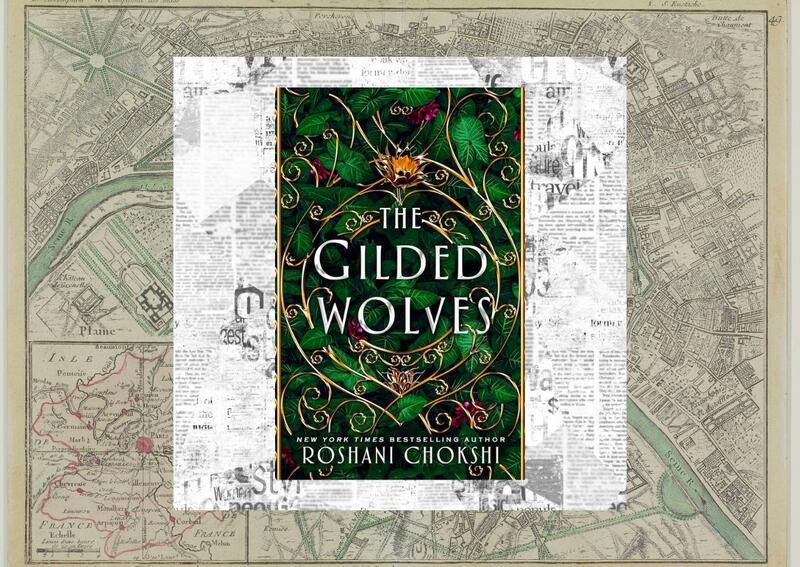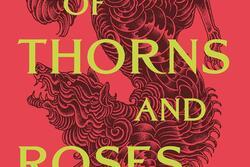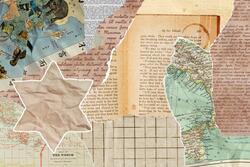Authentic Representation in "The Gilded Wolves"
“The Gilded Wolves, by Roshani Chokshi, is a young adult historical fantasy novel set in late-1800s Paris and follows a group of teenagers working to steal an ancient artifact. The writing is beautiful, and the story is tragically wonderful. You absolutely have to read it.”
I’ve perfected my elevator pitch for The Gilded Wolves over the years, ever since the beginning of my seventh-grade obsession with the book. It introduced me to the historical fantasy genre and drew me into the wonderful world of Young Adult (YA) fiction. Beyond that, it also showed me the power of good representation and the ways that authors can create meaningfully diverse characters.
Roshani Chokshi has written for readers of all ages, from Aru Shah and the End of Time for middle-grade readers to The Star-Touched Queen for adults. In her books, powerful characters wrestle with difficult issues. Main themes of The Gilded Wolves include identity, the dangers of colonialism, and the lasting effects of trauma. Though the novel is set over a century ago, many of these issues discussed are still relevant today.
Readers can learn a lot from how Chokshi explores the effects of colonialism, the importance of family, and themes of power and identity. My love for the novel isn’t just about the mesmerizing plot and stunning writing—though do keep those in mind when choosing your next read—it’s about the depth and care that Roshani Chokshi took in writing a diverse cast of characters whose identities are important to them but aren’t their defining features.
The Gilded Wolves is set amidst a time of colonization, prejudice, and oppression and follows the experiences of the characters, many of whom have first-hand experience with persecution and hate. The ways these challenging issues are written about make them personal for the reader through anecdotes and individual stories while also showing their broader impact. Enrique Mercado-Lopez, a Spanish and Filipino historian, dreams of being a part of the Ilustrados, a Filipino revolutionary group. However, due to his Spanish ancestry and appearance, he is not accepted into their inner circle, which devastates him. As the reader learns to sympathize with his individual struggles, they also get a glimpse into the challenges of a multicultural identity. Reading The Gilded Wolves made me feel like I knew the characters and understood their actions and relationships.
One of my favorite parts of The Gilded Wolves is the diversity of the characters, and the many different viewpoints seen throughout the story—and the fact that this diversity isn’t just surface-level representation. The characters’ “diverse” aspects do not define them but instead are part of a more well-rounded personality that gives a lot of depth. Race, gender, sexuality, religion, ability: all are shown in the characters but do not overshadow them as people.
One character in particular who I’ve always been drawn to is Zofia Boguska, an autistic Polish Ashkenazi Jew with a magical Forging affinity for metal and fire—making her an excellent, if not dangerous, engineer. Zofia faces antisemitism throughout her life, something that greatly influences the ways that she interacts with the world and with those around her. She has certainly not had an easy life, but she works hard and perseveres. Friendships and relationships are not easy, but they are very important to her. She is a complex, dynamic character who feels very genuine. There are certain parts of her identity and experience that I can relate to, and there are other parts that help me learn.
The characters of The Gilded Wolves are windows into other cultures and identities, helping me better understand other perspectives and situations. I appreciate having characters I relate to, and I also appreciate the characters that are different from me. I learn a lot from both kinds of characters, which is made possible by the book’s wide representation of identity.
Today, media representation is a big topic of conversation, and there are many individuals and advocacy groups taking action to improve representation. For example, We Need Diverse Books, founded in 2014, is a nonprofit that works to increase the diversity in children’s books.
When it comes to representation in books, the use of sensitivity readers is critical to creating meaningful diversity. Sensitivity readers “make editorial suggestions regarding content that could be considered offensive, inaccurate or stereotypical.” With a lack of diversity in publishing, sensitive readers bring a needed voice to the industry.
Of course, Chokshi does not identify with all the identities and cultures of the characters she writes about. She is not Jewish, yet Zofia Boguska is one of my favorite Jewish fictional characters. So, what makes the authenticity of the characters possible? Chokshi has spoken about her use of sensitivity readers, and how important that is as a part of her process.
In one interview, where Chokshi was asked about how challenging it was to write all the different voices and viewpoints she responded, “To write outside my own lived experience was a frightening prospect at times, but I also knew that I owed it to readers for my own world and characters to reflect the richness of life around us. I relied on many sensitivity readers from differing backgrounds to nail the character perspectives, and I hope I was successful.”
As a reader, I appreciate the care she takes in the creation of her characters, doing justice to their identities and their struggles. In a world where positive representation for many underrepresented groups is sorely lacking, I’m grateful for strong examples of what that can look like, and how successful representation can be achieved.
As an aspiring author, I look to her for inspiration on how I might approach the challenging topics I will undoubtedly write about while also making the representation authentic and meaningful.
This piece was written as part of JWA’s Rising Voices Fellowship.







